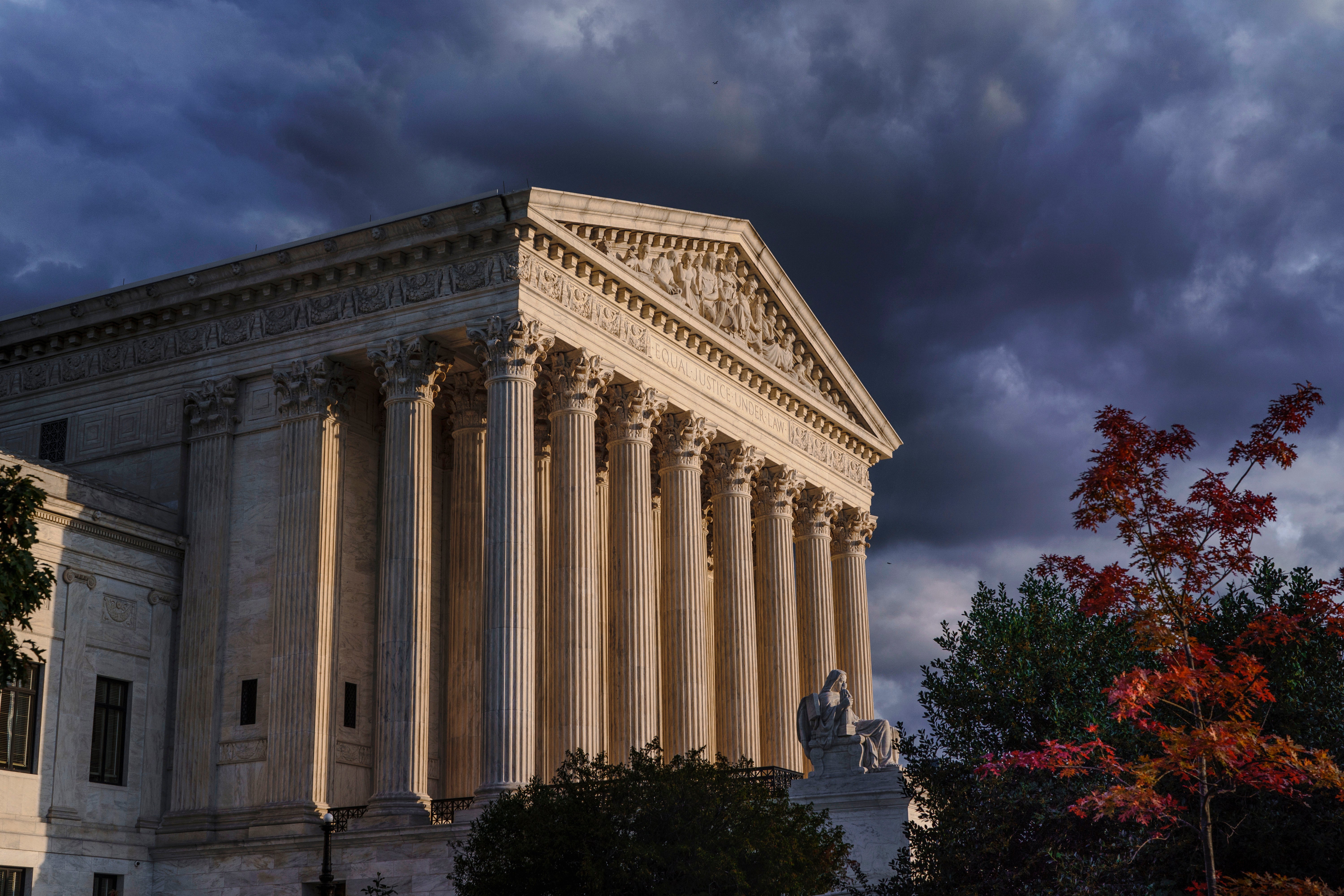Texas abortion law: Supreme Court allows clinics to sue but leaves strict law in effect
The court threw out the federal government’s challenge to the Texas law

The US supreme court has ruled that Texas abortion clinics can sue the state for its strict new law – but kept the measure in place. The law, which came into effect earlier this year, bans abortions once cardiac activity is detected in the fetus and allows anyone in the country to sue a person who assists someone seeking an abortion. If the suit is successful, the person suing can receive up to $10,000 (£7,500).
“The court concludes that the petitioners may pursue a pre-enforcement challenge against certain of the named defendants but not others,” the court said on Friday.
At the same time, Justice Neil Gorsuch, who wrote the opinion, cautioned that “the ultimate merits question” about the Texas law “is not before the court”, nor was the wisdom about the law as policy.
But Justice Sonia Sotomayor, in her dissent, railed against the majority opinion. Justices Elena Kagan and Stephen Breyer joined in the dissent.
“The court should have put an end to this madness months ago, before SB 8 [Senate bill 8] first went into effect. It failed to do so then, and it fails again today,” Ms Sotomayor wrote.
“The chilling effect has been near total, depriving pregnant women in Texas of virtually all opportunity to seek abortion care within their home state after their sixth week of pregnancy,” she wrote. “Some women have vindicated their rights by traveling out of state. For the many women who are unable to do so, their only alternatives are to carry unwanted pregnancies to term or attempt self-induced abortions outside of the medical system.”
But Mr Gorsuch shot down Ms Sotomayor, saying that the court was “shrink[ing] from the task of defending democracy over state law”.
“That rhetoric bears no relation to reality,” he wrote.
In a statement, Amy Hagstrom Miller, the CEO of Whole Women’s Health and the lead plaintiff in the case against the Texas law, expressed relief.
“Finally, we have hope for an end to this horrific abortion ban. The legal back and forth has been excruciating for our patients and gut-wrenching for our staff,” she said. “We hope this law is blocked quickly so we can resume the full scope of abortion care we are trained to provide.”
Additionally, Chief Justice John Roberts cautioned about the effects and the intent of the Texas law.
“The clear purpose and actual effect of SB 8 has been to nullify this court’s rulings,” he wrote in a dissent joined by Justices Breyer, Kagan and Sotomayor. “The nature of the federal right infringed does not matter; it is the role of the supreme court in our constitutional system that is at stake.”
At the same time, the court also threw out the federal government’s challenge to Texas’s law “improvidently granted”.
President Joe Biden said in a statement Friday night that he was concerned that the law was allowed to stand but avoided using the word “abortion.”
“While it is encouraging that the Court ruled that part of the providers’ lawsuit may continue, this ruling reinforces that there is so much more work to be done—in Texas, in Mississippi, and in many states around the country where women’s rights are currently under attack,” he said.
He reiterated his support for the Women’s Health Protection Act as well, though it has little chance of passing.
“We have more work to do, but I will always stand with women to protect and defend their long-recognized, constitutional right under Roe v. Wade.”
Join our commenting forum
Join thought-provoking conversations, follow other Independent readers and see their replies
Comments
Bookmark popover
Removed from bookmarks